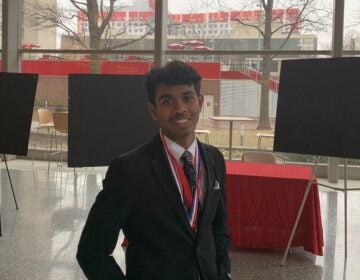Virtual reality meets industry reality at Philly universities
Drexel and University of the Arts each open virtual reality studios, for art and industry
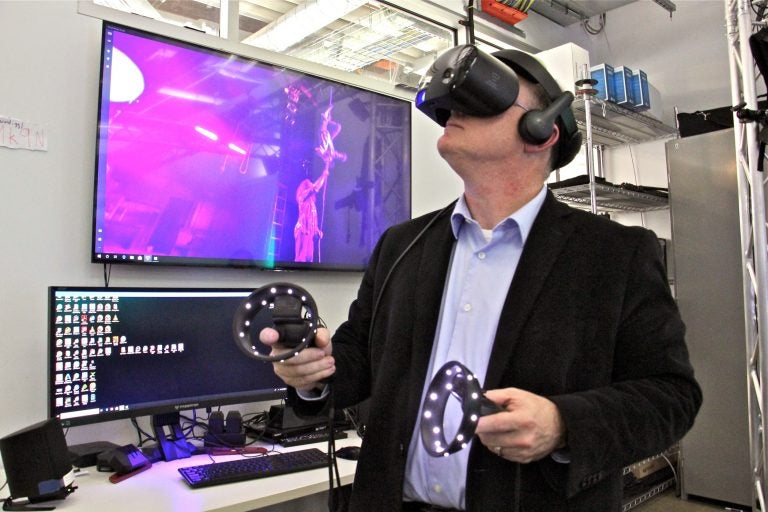
Nick Jushchyshyn, Program Director of Virtual Reality; Immersive Media at Drexel University, watches a dance performance using a virtual reality headset at the school's new Immersive Research Lab. (Emma Lee/WHYY)
The latest game being developed at Drexel University isn’t at all like Fortnite or League of Legends. Using a virtual reality headset, it puts you inside a commercial kitchen. You have to deal with the fast-paced scene of coworkers, customers, and simmering pots.
It has an added element that sets it apart from a Gordon Ramsay nightmare.
“In this cooking simulator, you are serving people with people,” said designer Travis Hove. “The game is called ‘Cooking with Cannibals.’”
The fact that the game is immersive, in a total VR environment, drives home the gruesome premise of cannibalism.
“It’s almost like a ‘Hell’s Kitchen,’ but full of stupid jokes and funny characters,” said Jen Raimondi, another designer of the game. “The best way to do that, instead of just holding a controller, is actually putting a player in there. They have to pick things up and put things down.”
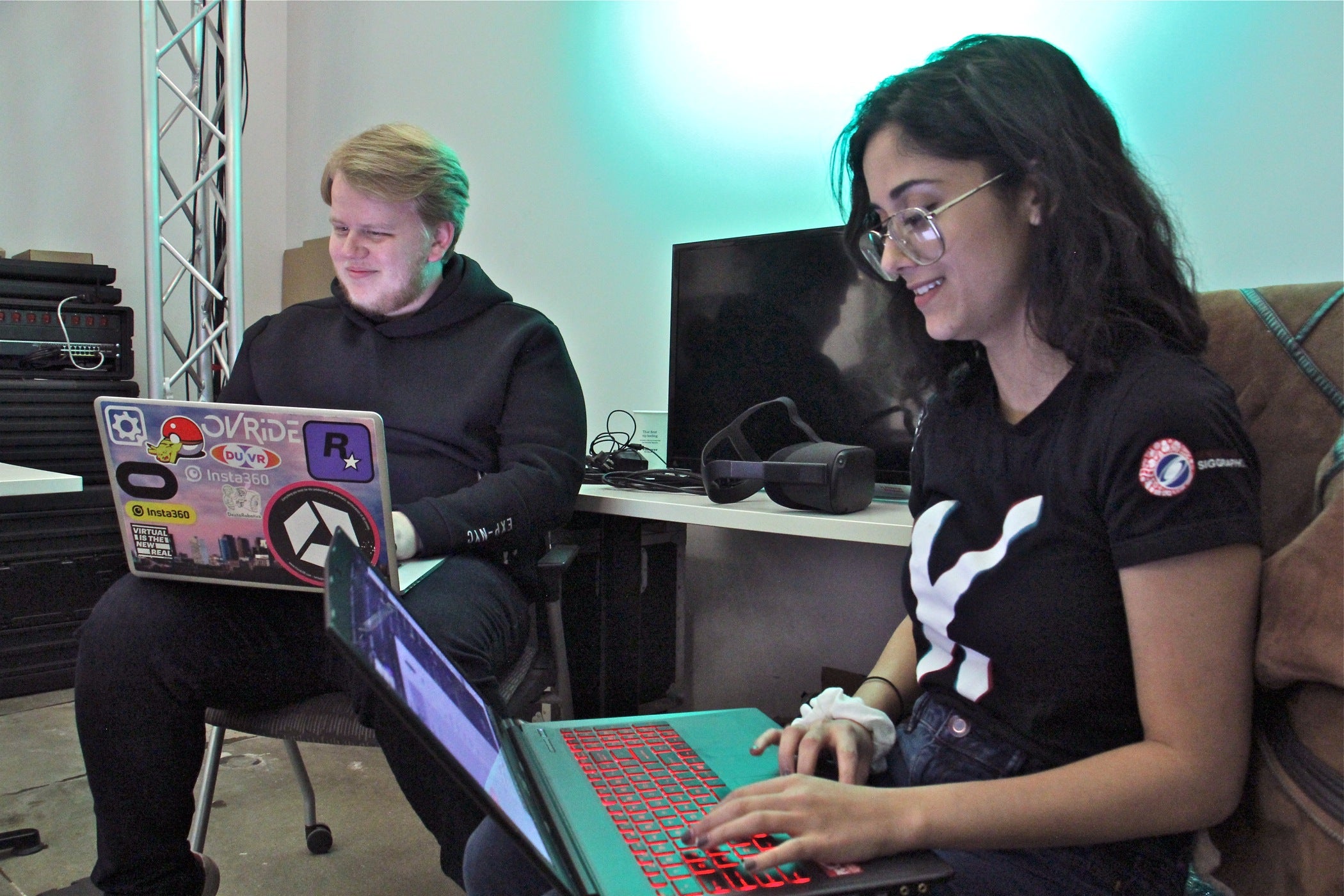
Both Raimondi and Hove are seniors in the digital media department. “Cooking for Cannibals” is their final project before going out into the professional world. When they started at Drexel, they did not have virtual reality on their minds: Hove came to study music, and Raimondi was studying animation.
In their three years at Drexel, immersive technology has become more accessible and in demand. This year, for the first time, incoming freshmen are able to enter a degree program so they can graduate with a BA in VR.
The new bachelor of arts program and Immersive Research Lab were developed in reaction to growing demand from the industry as well as students.
“For as many students as we have that enter the entertainment industry, whether it’s animation studio, effects studio, or game studio, we have as many students go into architectural firms or medical institutions or museums,” said Nick Jushchyshyn, director of the Immersive Research Lab. “They very quickly learn this tool set is valuable to a variety of industries.”
Industries are spending billions of dollars to develop VR applications for their businesses, a trend expected to grow in the next few years.
Last week, another immersive media lab opened across town, at the University of the Arts on South Broad Street. UArts does not offer a degree program in VR, but it does encourage all its students, in any discipline, to explore how immersive media might apply to their field: dance, theater, film, etc.
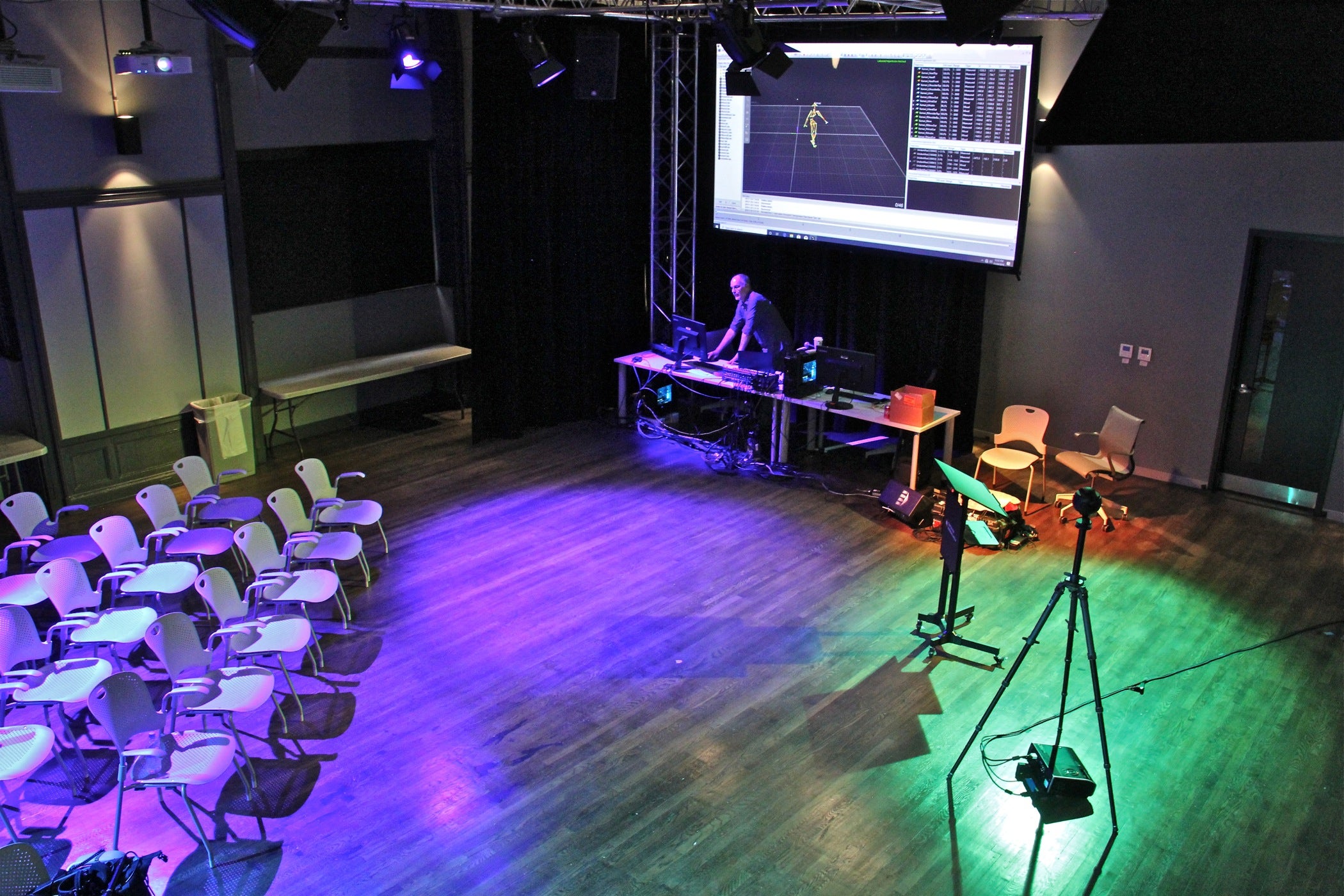
UArts president David Yager believes it’s essential for students to understand what VR can do in art and industry. Before he arrived at UArts, he developed VR applications at Johns Hopkins Hospital in Maryland that are used for pain management.
“In my research, I used [VR] a lot for distraction,” said Yager. “Can you distract a patient so you use less pain medication, which is dangerous sometimes.”
The new Immersive Media Center at UArts, in what used to be its theater-set building space, has a 1,600-square-foot motion-capture studio and cameras that shoot 360 degrees. A room is set up with a 16-speaker surround-sound cage that can pinpoint sound anywhere inside that 3D space.
The director of the center, Alan Price, is particularly enthused about developing tools that will allow a participant – a player – to move freely, untethered through an imaginary digital environment.
With more than 15 years of virtual reality under his belt, Yager is no longer enamored by technology, but rather how it is applied.
“Some of the things I’ve looked at over the last six months, I’m, like, why are you using that technology?” he said. “Like banking: Do your custom banking using VR! Like, really? We have enough trouble doing online banking. It’s like throwing technology at a problem that doesn’t exist.”
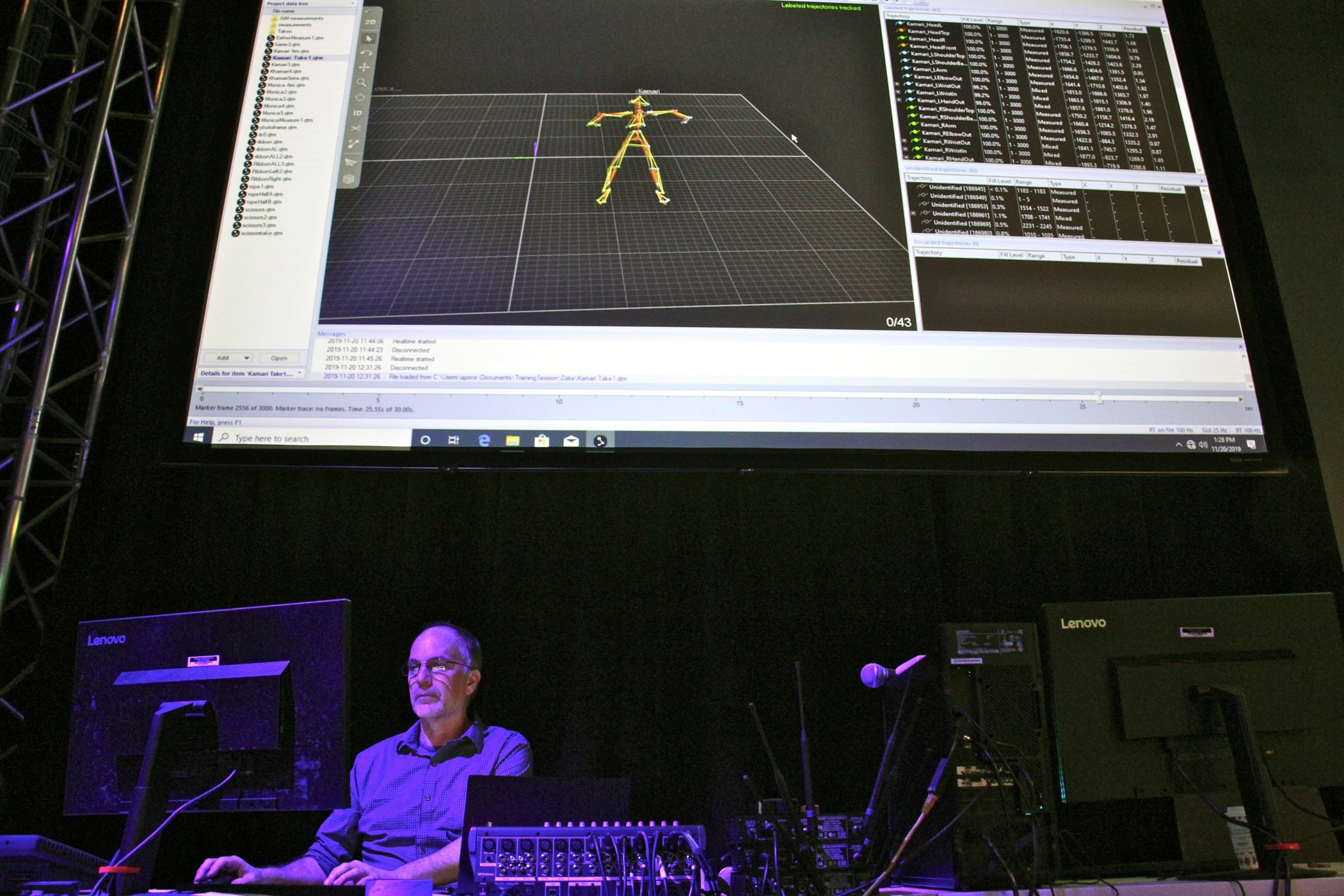
Yager wants to open it up to outside businesses that will collaborate with students to create applications for VR. He said he’s begun talking with Thomas Jefferson University Hospital.
What might become of it, he doesn’t know. And that’s the point.
“I’ve always built centers that I know something really good is going to happen, but if you asked me what, I don’t know,” said Yager. “If I did know the what, I wouldn’t be excited as I am now.”
WHYY is your source for fact-based, in-depth journalism and information. As a nonprofit organization, we rely on financial support from readers like you. Please give today.




